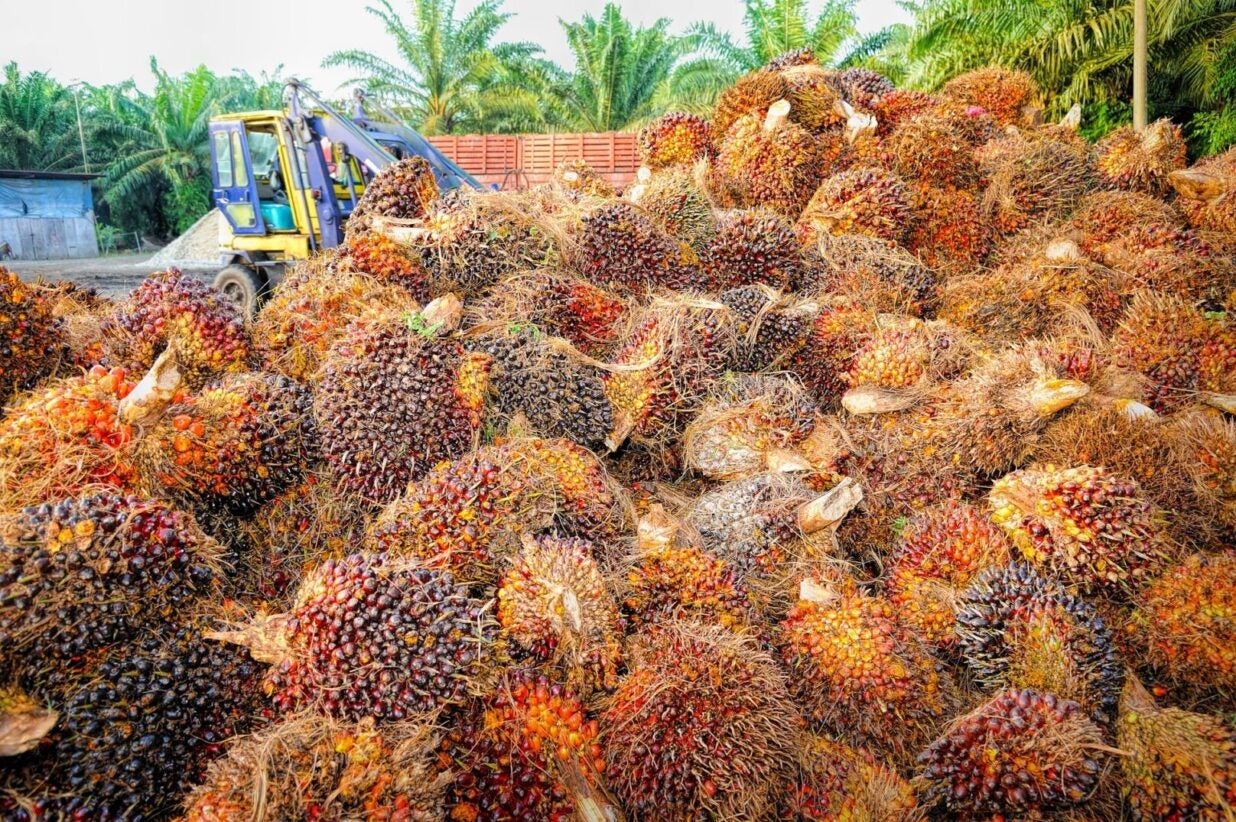
UK food retailer Iceland has reverted to using palm oil in the spirit of “huge regret” as supply constraints around the Ukraine crisis push up sunflower oil costs.
Frowned upon for its impact on deforestation, palm oil was abandoned by Iceland in 2018 in favour of using sunflower oil. The Ukraine conflict has inflated the cost of food commodities including wheat and sunflower oil, exacerbating inflationary pressures sparked by economies re-opening from Covid-19 restrictions.

Discover B2B Marketing That Performs
Combine business intelligence and editorial excellence to reach engaged professionals across 36 leading media platforms.
Russia and Ukraine account for 73% of the global supply of sunflower oil, according to the Council of Palm Oil Producing Countries (CPOPC), a non-profit organisation based in Jakarta, Indonesia, one of the world’s largest producers along with Malaysia. A consultant at the group, writing in a commentary on 7 March before Iceland’s decision, suggested the conflict may see food manufacturers turn back the tables on the use of palm oil.
Richard Walker, the managing director of Iceland, said the company has been pushed into a corner and will start using palm oil in some of its own-label products, a decision he described as “strictly a temporary move, and one that I would not countenance at all if I could see any viable alternative”.
Writing in blog posted on Iceland’s website, Walker said: “I say this with huge regret, but the only alternative to using palm oil under the current circumstances would simply be to clear our freezers and shelves of a wide range of staples including frozen chips and other potato products.
“So we have agreed to use certified sustainable palm oil – as a last resort and as a strictly temporary measure – in a limited range of Iceland own-label products that will begin to appear in our stores from June. All packs will of course clearly show palm oil in the list of ingredients where it has been used.”

US Tariffs are shifting - will you react or anticipate?
Don’t let policy changes catch you off guard. Stay proactive with real-time data and expert analysis.
By GlobalDataDr Kalyana Sundram, a consultant at CPOPC, wrote in his 7 March blog that rising sunflower costs could force food producers to turn to alternatives such as palm oil to protect profits and margins.
“It now looks like the Russia-Ukraine conflict will significantly curtail availability of sunflower oil for various applications. Coupled [with] sky-rocketing commodity prices, it is yet to be seen if snack food manufacturers could continue to afford such escalated raw material costs in their frying fat choices. Market dynamics, however, indicate this may not be viable and it is likely that food manufacturers will look elsewhere to circumvent their losses,” Sundram claimed.
“The most likely solution for this could be their return to using palm olein as the frying fat of choice in many snack foods manufacture. Market forces, particularly in the Asia, Middle East regions are already signalling this makeover. For food manufacturers, this would still be an easy switch since there is a large body of readily available data on how best to re-adopt palm olein on its own or in combination with other palm fractions for the fry and snack food industries.”
Sundram defended the use of palm oil, conceding its adoption will need some explaining to consumers, particularly in Europe.
“The large number of products with ‘no palm oil’ claims need to make the about-turn and adopt palm olein for its well worth and defined qualities in these applications,” he wrote.
“So strangely, while the Russia-Ukraine conflict has spun the world into more turmoil, negatively impacted petroleum, gas and even sunflower oil supply chains, the solution for the edible oil sector may lie in a reverse to the old ways through [the] adoption of various palm oil, palm olein applications. It seems the ball is rolling back one full circle here but final decisions and outcomes are still waited in earnest.”
Iceland’s Walker explained the retailer’s move, going to lengths to assure customers about its future strategy.
“Our suppliers of meat, poultry, eggs, dairy products and a range of other foods are not just warning us of massive inflationary pressures hurtling towards them: they are seriously worrying about whether they will be able to secure key ingredients at all, or have the diesel to transport them to depots and stores if they do,” he said.
“This is a serious emergency and one that requires tough choices and compromises if we are to achieve our prime objective of continuing to feed the nation – and of delivering affordable food to those on tight budgets, who will inevitably be those worst affected by the unprecedented pressures now building up in our supply chains.”
Walker said in some cases rapeseed oil is an alternative to palm but it is not suited to all products and recipes. Palm oil, he said, has advantages “because of its processing properties or taste issues”.
“Massively increasing global demand for palm oil inevitably means continuing pressure on the globally important tropical rainforest areas where it is grown, and I therefore remain sceptical as to whether there ever really can be any such thing as truly ‘sustainable palm oil’ available in the mass market where Iceland operates,” Walker said.
He added: “I note these assurances from the industry that it really has cleaned up its act on deforestation – and we will be carefully monitoring its performance in the weeks and months ahead.
“In the long term, we remain very much committed to keeping the Iceland own-label range free of palm oil ingredients, and will revert to using sunflower oil as soon as the supply situation stabilises and it becomes practical for us to do so.”





